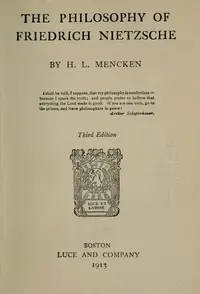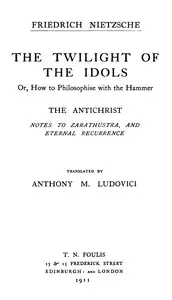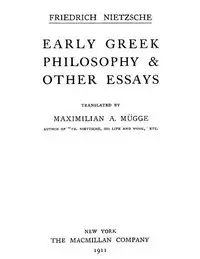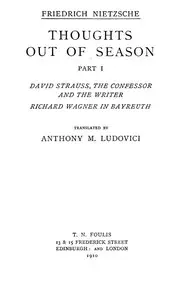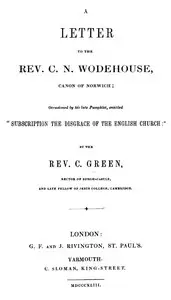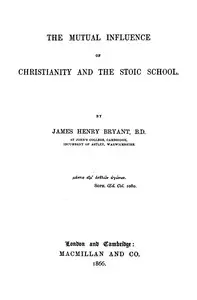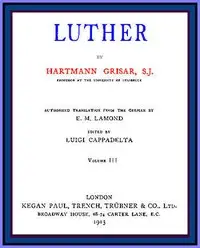"The Dawn of Day" by Friedrich Wilhelm Nietzsche is a philosophical exploration marking a pivotal moment in the author's intellectual growth. The book presents a critique of established belief systems and the very basis of morality, diving into fundamental questions about what it means to be human, the nature of morality, and the concept of autonomy. Nietzsche casts light on how moral ideas develop and how they shape human actions. His work introduces people who deeply explore their beliefs, suggesting that real understanding can come from being alone and thinking deeply. The author stresses how individual freedom and morality connect, with him arguing that traditional values may limit a person’s ability to be free; Nietzsche then prepares the reader for a breakdown of societal tradition and its effects on moral thought that is meant to challenge common ethical guidelines.

The Dawn of Day
By Friedrich Wilhelm Nietzsche
Embark on a journey of self-discovery and the questioning of everything you thought you knew, as traditional beliefs are placed on trial and the confines of conventional morality are challenged.
Summary
About the AuthorFriedrich Wilhelm Nietzsche was a German classical scholar, philosopher, and critic of culture, who became one of the most influential of all modern thinkers. He began his career as a classical philologist before turning to philosophy. He became the youngest person to hold the Chair of Classical Philology at the University of Basel in Switzerland in 1869, at the age of 24, but resigned in 1879 due to health problems that plagued him most of his life; he completed much of his core writing in the following decade. In 1889, at age 44, he suffered a collapse and afterward a complete loss of his mental faculties, with paralysis and probably vascular dementia. He lived his remaining years in the care of his mother until her death in 1897, and then with his sister Elisabeth Förster-Nietzsche. Nietzsche died in 1900, after experiencing pneumonia and multiple strokes.
Friedrich Wilhelm Nietzsche was a German classical scholar, philosopher, and critic of culture, who became one of the most influential of all modern thinkers. He began his career as a classical philologist before turning to philosophy. He became the youngest person to hold the Chair of Classical Philology at the University of Basel in Switzerland in 1869, at the age of 24, but resigned in 1879 due to health problems that plagued him most of his life; he completed much of his core writing in the following decade. In 1889, at age 44, he suffered a collapse and afterward a complete loss of his mental faculties, with paralysis and probably vascular dementia. He lived his remaining years in the care of his mother until her death in 1897, and then with his sister Elisabeth Förster-Nietzsche. Nietzsche died in 1900, after experiencing pneumonia and multiple strokes.




